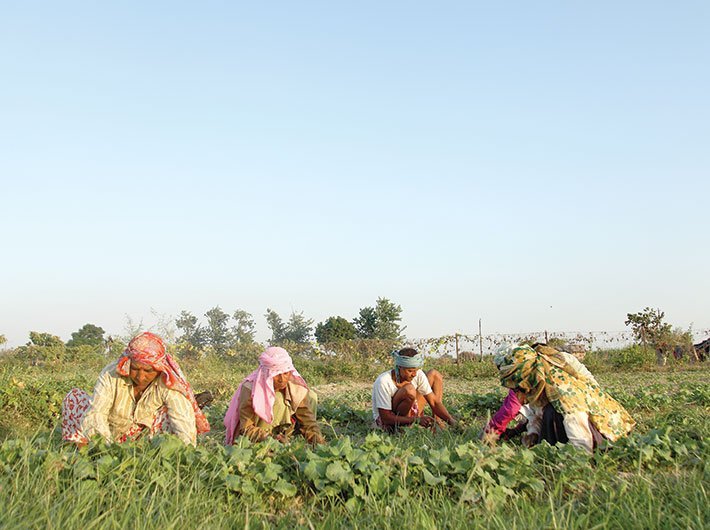When considering climate change, one of the greatest threats before the humanity, discussions usually focus on air and water, but land too is affected by and in turn affects global warming as much as those two elements. A new report from the Intergovernmental Panel on Climate Change (IPCC), out early August, seeks to put the role of land in future international negotiations over the way to contain the crisis.
Land is coming under more and more pressure from human use, says the ‘Summary for Policymakers of the Special Report on Climate Change and Land’ (SRCCL), prescribing that greenhouse gas emissions from land and food will have to be reduced if the world aims to restrict global warming to the targeted below-2-degree Celsius.
The report, approved by the world’s governments on August 7 in Geneva, will be an important scientific input for climate and environment negotiations that will come up soon, such as the Conference of the Parties of the UN Convention to Combat Desertification (COP14) in New Delhi in September and the UN Framework Convention on Climate Change Conference (COP25) in Santiago, Chile, in December, IPCC said in an official release.
The IPCC is the world body for assessing the state of scientific knowledge related to climate change, its impacts and potential future risks, and possible response options.
“Governments challenged the IPCC to take the first ever comprehensive look at the whole land-climate system. We did this through many contributions from experts and governments worldwide. This is the first time in IPCC report history that a majority of authors – 53% – are from developing countries,” Hoesung Lee, chair of the IPCC, was quoted as saying in the release.
The report shows that better land management, though not a full solution to climate change in itself, can contribute to tackling the problem.
“Land plays an important role in the climate system,” said Jim Skea, co-chair of IPCC Working Group III. “Agriculture, forestry and other types of land use account for 23% of human greenhouse gas emissions. At the same time, natural land processes absorb carbon dioxide equivalent to almost a third of carbon dioxide emissions from fossil fuels and industry,” he said.
When land is degraded, it becomes less productive, restricting what can be grown and reducing the soil’s ability to absorb carbon. This exacerbates climate change, while climate change in turn exacerbates land degradation in many different ways.
Kiyoto Tanabe, co-chair of the Task Force on National Greenhouse Gas Inventories, said, “In a future with more intensive rainfall the risk of soil erosion on croplands increases, and sustainable land management is a way to protect communities from the detrimental impacts of this soil erosion and landslides. However there are limits to what can be done, so in other cases degradation might be irreversible.”
The report points out options to tackle land degradation, and prevent or adapt to further climate change. It also examines potential impacts from different levels of global warming.
“New knowledge shows an increase in risks from dryland water scarcity, fire damage, permafrost degradation and food system instability, even for global warming of around 1.5 degree C,” said Valérie Masson-Delmotte, co-chair of IPCC Working Group I.
The report highlights that climate change is affecting all four pillars of food security: availability (yield and production), access (prices and ability to obtain food), utilization (nutrition and cooking), and stability (disruptions to availability).
“Food security will be increasingly affected by future climate change through yield declines – especially in the tropics – increased prices, reduced nutrient quality, and supply chain disruptions,” said Priyadarshi Shukla, co-chair of IPCC Working Group III. “We will see different effects in different countries, but there will be more drastic impacts on low-income countries in Africa, Asia, Latin America and the Caribbean,” he said.
Producing some foods “require more land and water, and cause more emissions of heat-trapping gases than others”, said Debra Roberts, co-chair of IPCC Working Group II. “Balanced diets featuring plant-based foods, such as coarse grains, legumes, fruits and vegetables, and animal-sourced food produced sustainably in low greenhouse gas emission systems, present major opportunities for adaptation to and limiting climate change,” she said.
